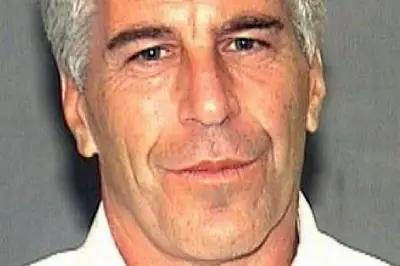
In a significant political reversal, Donald Trump is expected to sign a bill that will compel the US Justice Department to release a trove of additional files related to the late financier and convicted sex offender, Jeffrey Epstein.
A Surprising Change of Heart
The move comes after the former president had previously fought vigorously against making the documents public, dismissing the matter as a "hoax" and criticising those demanding transparency. However, he dramatically changed his position in recent days once it became clear that the House of Representatives would pass the legislation regardless.
Trump justified his reversal by stating, "we have nothing to hide" and characterising the previous focus on the files as a tactic by "Radical Left Lunatics" to distract from Republican successes. Following his indication of support, Republican holdouts swiftly moved the bill through the House and then the Senate. This followed months of stalling by House Speaker Mike Johnson, who had hoped the Senate would amend the bill, a hope that was not realised.
What the Epstein Bill Mandates
The newly passed bill mandates that the US Attorney General make unclassified Epstein-related documents available to the public in a searchable and downloadable format. The required materials are extensive and include:
- All investigations into Epstein and his associate, Ghislaine Maxwell.
- Epstein's flight logs and travel records.
- Details on individuals named or referenced in connection with his crimes.
- Entities linked to his trafficking or financial networks.
- Immunity deals and other plea agreements.
- Internal communications regarding charging decisions.
- Documentation surrounding his detention and death.
The Justice Department has been given a 30-day deadline to comply with the request. The legislation does, however, provide for specific exceptions to protect sensitive information. These exceptions permit redactions to conceal victims' identities, personal files, depictions of child sexual abuse, and any information that could jeopardise active investigations or prosecutions.
Context and Contentious History
This development occurs against a backdrop of the Justice Department having previously asserted that it had released all possible documents without compromising investigations or victim confidentiality. A department memo from July stated that much of the material remained subject to court-ordered sealing, primarily to protect victims.
The political intrigue is heightened by the historical connection between Trump and Epstein, who were once friends. Previous document releases by members of Congress have already contained references to Trump, though these mentions do not imply he was involved in any criminal activity. The files included emails from Epstein to Trump biographer Michael Wolff, in which Epstein made derogatory remarks about Trump, claiming he "knew about the girls" and was the "dog that hasn't barked."
With the signing of this bill, a new wave of information about one of the most notorious criminal cases in recent memory is set to become public, potentially shedding further light on the network surrounding Jeffrey Epstein.





